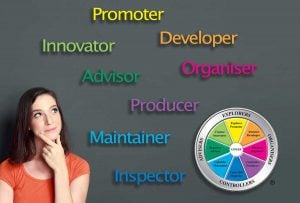 The transition of the ‘people function’ title to ‘People and Culture’ represents a fundamental shift in how organisations view their workforce. Linda Grant explores the evolution of this function, now seen as being a strategic partner in achieving organisational goals.
The transition of the ‘people function’ title to ‘People and Culture’ represents a fundamental shift in how organisations view their workforce. Linda Grant explores the evolution of this function, now seen as being a strategic partner in achieving organisational goals.
In the 1980s Personnel Management began to change from being a purely administrative function to one that recognised the strategic importance of effective workforce management — which laid the groundwork for the evolution towards Human Resources. While personnel describes a workforce adequately — recognising the labels of ‘human’ and ‘resources’ acknowledged the human value of a group of employees.
Human Resources as a strategic function
In the last twenty years Human Resources has developed as a strategic function — in the past it was viewed as a necessity to have in organisations not as a key strategic priority. The primary focus for Human Resources (HR) teams has been resource management, aligning workforce planning with business strategy — viewing employees as resources that are essential for productivity and organisational success; and focusing on necessary HR administration for compliance, performance management, policy and process.
 Since the 2010s there has been a growing movement of HR teams transitioning to becoming the People and Culture team. HR is being seen as being outdated in describing the rapidly changing work environment. This change is a clear recognition of how organisations now view their workforce, prioritising the overall employee experience and recognising the importance of a positive workplace culture in achieving business success.
Since the 2010s there has been a growing movement of HR teams transitioning to becoming the People and Culture team. HR is being seen as being outdated in describing the rapidly changing work environment. This change is a clear recognition of how organisations now view their workforce, prioritising the overall employee experience and recognising the importance of a positive workplace culture in achieving business success.
Key drivers of this transition are:
- Changing workforce expectations
- Globalisation and cross-cultural teams
- Technological advancements
- Social movements
The positive role for the People and Culture team
 There will still be a need for HR administration for compliance, policy and process but the primary role of the People and Culture team is to build a purpose-driven, inclusive and positive work environment with focus on people-first — the employee experience and engagement using a more values-based approach.
There will still be a need for HR administration for compliance, policy and process but the primary role of the People and Culture team is to build a purpose-driven, inclusive and positive work environment with focus on people-first — the employee experience and engagement using a more values-based approach.
In this environment where people are seen as being central to the culture, innovation and organisational health, the People and Culture team needs to focus on creating a workplace culture where individuals have a positive experience and can grow and develop in their careers.
Some of the areas that the People and Culture team need to prioritise include:
- People and Culture strategy
- Employer branding
- Talent acquisition
- Onboarding and employee retention
- Employee engagement
- Performance management
- People and team development
- Leadership development
- Continuous professional development
- Company culture
- Equity, diversity, inclusion
- Pay and benefits
- Technology and data
Working in Partnership to support ‘people and culture’
The focus at Coach Mentoring Ltd., since its inception in 2004, has always been on the people in organisations. Working alongside HR and People and Culture teams in partnership, our purpose has been, and continues to be, to provide support to help people grow and develop in their careers for not only their individual benefit but also for the benefit of the organisation they are part of. We continue to believe that individuals, leaders and teams are the lifeblood of any organisation – how they behave, interact and perform impacts the culture and success of the organisation. The best products, services, research and advocacy in the world do not develop or sell themselves – the people do.

What actions are you taking with individuals, leaders and teams to establish a positive working environment that benefits the success of your organisation? What actions can you consider to move your organisation towards having a more values-based approach? Where are you on your journey to creating and gaining support for a people and culture strategy in your organisation?
If you’re facing any of these or other questions relating to the various areas linked to ‘people and culture’ and would like to have a conversation to help your thinking, please get in touch.



